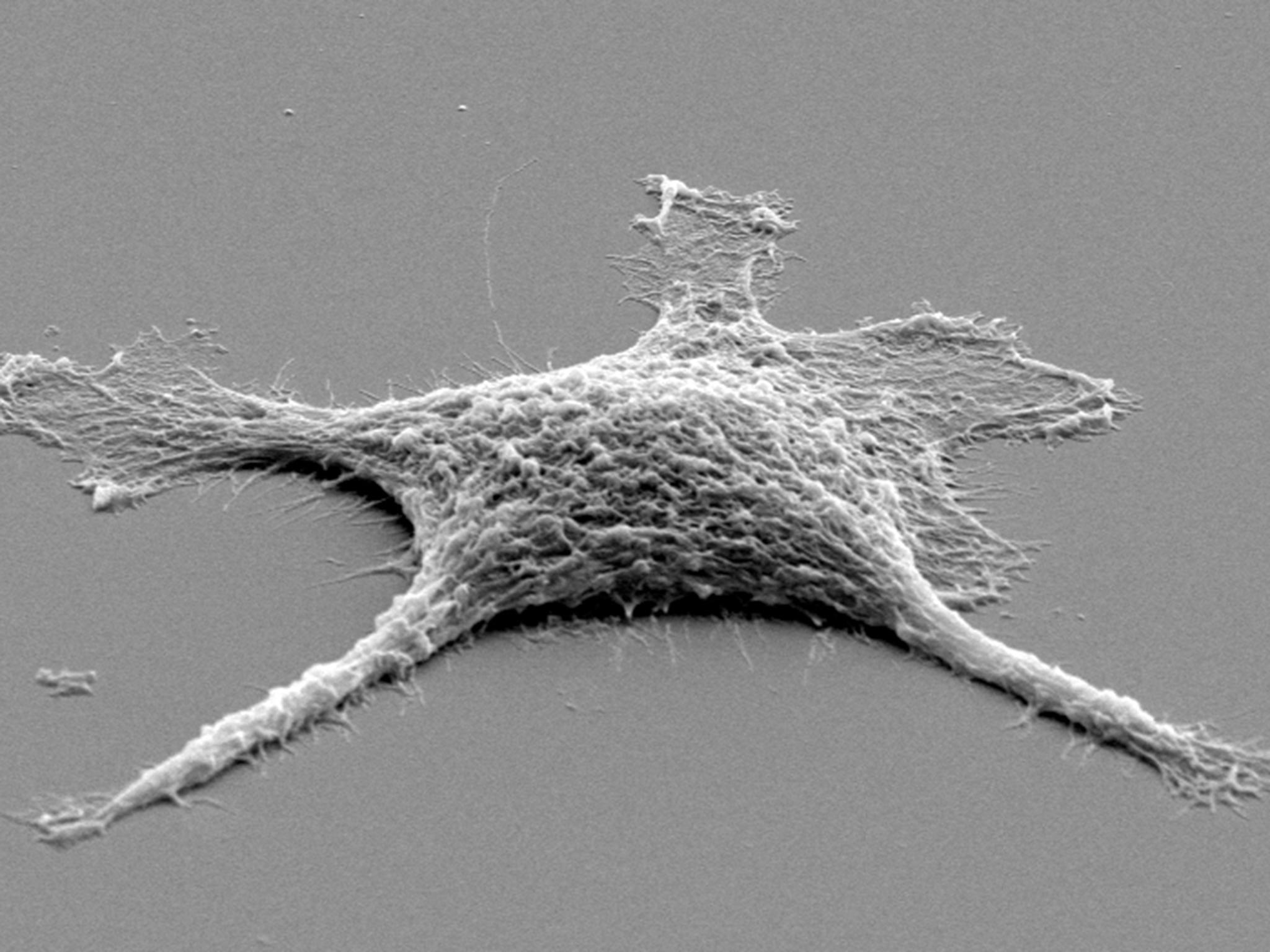Killing ‘zombie’ cells to improve health in old age
Researchers have discovered a new way to fight ageing and age-related disease – going after senescent cells

Your support helps us to tell the story
From reproductive rights to climate change to Big Tech, The Independent is on the ground when the story is developing. Whether it's investigating the financials of Elon Musk's pro-Trump PAC or producing our latest documentary, 'The A Word', which shines a light on the American women fighting for reproductive rights, we know how important it is to parse out the facts from the messaging.
At such a critical moment in US history, we need reporters on the ground. Your donation allows us to keep sending journalists to speak to both sides of the story.
The Independent is trusted by Americans across the entire political spectrum. And unlike many other quality news outlets, we choose not to lock Americans out of our reporting and analysis with paywalls. We believe quality journalism should be available to everyone, paid for by those who can afford it.
Your support makes all the difference.Imagine a world where you could take just a single pill for the treatment or prevention of several age-related diseases.
Although still in the realms of science fiction, accumulating scientific data now suggests that despite their biological differences a variety of these diseases share a common cause: senescent cells. This has led scientists to find drugs that can destroy these cells.
When cells become damaged, they either self-destruct (apoptosis) or they lose their ability to grow and remain stuck within the body. These are the non-growing senescent cells that no longer carry out their tasks properly.
They spew out chemicals that cause damage to cells nearby, sometimes turning them into “zombies” – hence why they are sometimes referred to as “zombie cells”. Eventually, the damage builds up so much that the function of bodily organs and tissues, such as skin and muscle, becomes impaired. At this point, we identify the changes as disease.
Depending on where these senescent cells gather within the body will determine which disease will develop. Senescent cells have now been shown to be linked to several diseases, including cardiovascular disease, type 2 diabetes, osteoarthritis and cancer.
In 2011 and in 2016, researchers at the Mayo Clinic in the US showed, through the use of genetically engineered (transgenic) mice, that the removal of senescent cells reduced cancer formation, delayed ageing and protected the mice against age-related diseases. The mice also lived 25 per cent longer on average. A similar result in humans would mean an increase in life expectancy from 80 years to 100 years. It was proof-of-principle studies like these that laid the groundwork and inspired other researchers to build on these findings.
Killing a few to save the many
It is not known how many senescent cells need to be present to cause damage to the body, but the harmful effects of the chemicals they release can spread quickly. A few zombie cells may have a huge impact. Drugs for specifically killing senescent cells in order to extinguish their destructive force have recently been revealed and tested on mice. The collective term for these drugs is “senolytics”.
In 2016, two research groups independently published findings on the discovery of two new senolytic drugs that target proteins responsible for protecting senescent cells from cell death. Research lead by scientists from the University of Arkansas, US, showed that the drug ABT-263 (Navitoclax) could selectively kill senescent cells in mice, making aged tissues young again. And scientists from the Weizmann Institute of Science in Israel used the drug ABT-737 to kill senescent cells in the lungs and skin of mice.
There has also been a lot of interest in the role of senescent cells in pulmonary diseases caused by damage to the lungs. Among the risk factors, smoking is known to speed up lung ageing and disease, partly by attacking healthy cells with toxic chemicals from cigarette smoke which can result in cells becoming senescent.
In late 2016, Japanese scientists showed that the removal of senescent cells using genetically engineered mice greatly restored lung function in old mice. A more recent study, lead by scientists at the Mayo Clinic in the US, showed that idiopathic pulmonary fibrosis (scarring of the lungs) was linked to an increase in the number of senescent cells and the damaging effects of the chemicals they release. The killing of senescent cells using genetically engineered mice again greatly improved lung function. In the same study, this group also reported the possible use of a combination of drugs, dasatinib and quercetin, to destroy senescent cells.
A study published earlier this month from the University of Arkansas, extended their previous findings on the drug ABT-263 to pulmonary fibrosis. They found that ABT-263 treatment reduced the problems caused by senescent cells and reversed the disease in mice.
There’s money in senolytics
In light of these accumulating and highly promising findings, a number of start-up biotechnology companies have been created to exploit the health benefits of targeting senescent cells. Probably the most well funded is Unity Biotechnology in the US which raised $116m (£94m) for research and development.
It will likely be several years before we see senolytic drugs being tested on humans. If you can’t wait that long, exercise may be the answer. A study published in March 2016 by the Mayo Clinic showed that exercise prevented the accumulation of senescent cells caused by a high-fat diet in mice. So if the regular health benefits of exercise were not enough to get you off the sofa, maybe the anti-ageing benefits will be.
Dominick Burton is a research fellow at Aston University. This article first appeared on The Conversation (theconversation.com)
Join our commenting forum
Join thought-provoking conversations, follow other Independent readers and see their replies
Comments